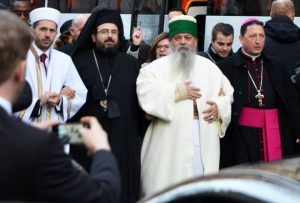
Prime Minister Edi Rama’s plan to establish a sovereign Bektashi enclave in Tirana has been marketed as a step toward promoting religious tolerance. However, the reality might be quite the opposite. By creating a Vatican-style state for one religious sect, this initiative risks deepening divisions within Albania’s multi-religious society.
Albania prides itself on its secularism and history of religious coexistence, but this move could undermine those values. Granting exclusive privileges to the Bektashi sect could foster resentment among other religious communities, particularly Sunni Muslims and Christians. They might view this project as government favoritism, leading to feelings of marginalization and inequality. This scenario may spark friction, weakening the social fabric that has long defined Albanian society.
Contrary to what Rama claims, this enclave might not be a beacon of unity, but rather a symbol of fragmentation. For a country that has worked hard to maintain balance between religious groups, this enclave sets a dangerous precedent: granting special status to one group could open the door to demands for similar treatment from others, escalating into further division.
Moreover, the decision to proceed without consulting NATO allies or international bodies reflects a lack of foresight. Albania’s geopolitical positioning and its EU membership aspirations could be jeopardized by internal religious discord.
The claim that this project will showcase moderate Islam could also backfire. The Bektashi Order, while tolerant, is seen as heretical by many conservative Muslim factions, both within and outside Albania. Instead of demonstrating tolerance, this project could be perceived as a provocation, further fueling sectarian conflict.
Prime Minister Rama’s initiative, billed as a celebration of diversity, risks promoting intolerance, inequality, and division. Instead of fostering religious harmony, this move may only serve to intensify tensions in a country that has long valued peaceful coexistence.
*This editorial reflects personal analysis and opinion, aiming to encourage thoughtful discussion on key societal issues.
